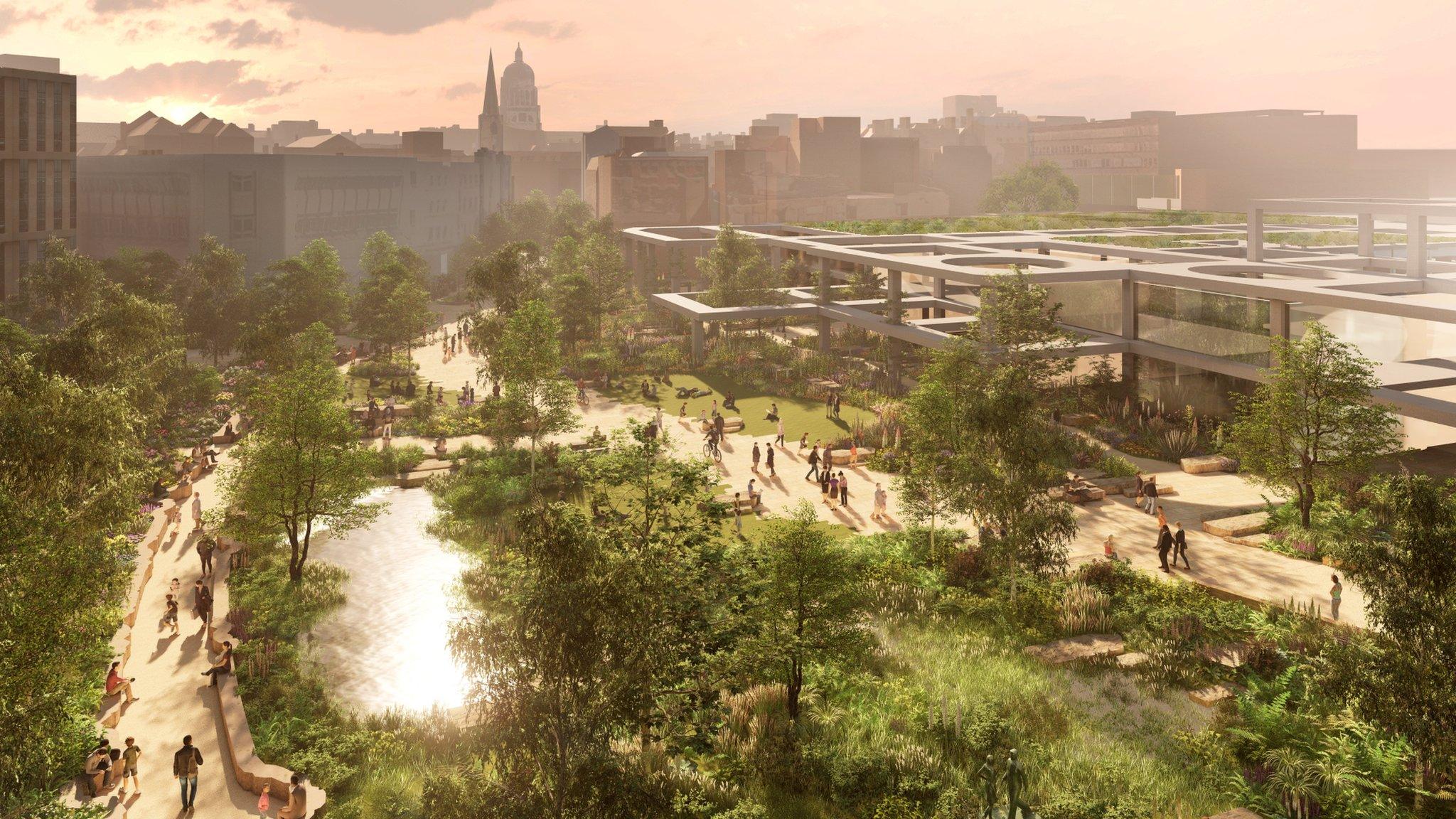Broadmarsh: Council to review shopping centre revamp vision
- Published
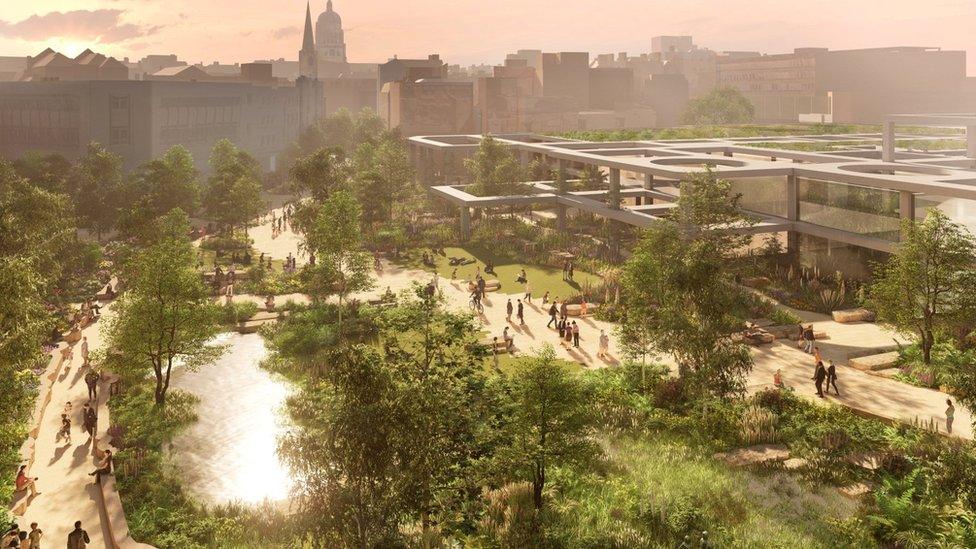
The Broad Marsh Green Heart vision aims to reconnect Nottingham's ancient streets with a green space at its heart
Plans for the revamp of Nottingham's Broadmarsh shopping centre are being reviewed, the city council has said.
The council says the viability of proposals for the derelict building is being considered as it finalises a business case for the scheme.
The building was handed to the council after previous owner Intu collapsed into administration in 2020.
Former city council leader Jon Collins says the authority's current vision is not deliverable.
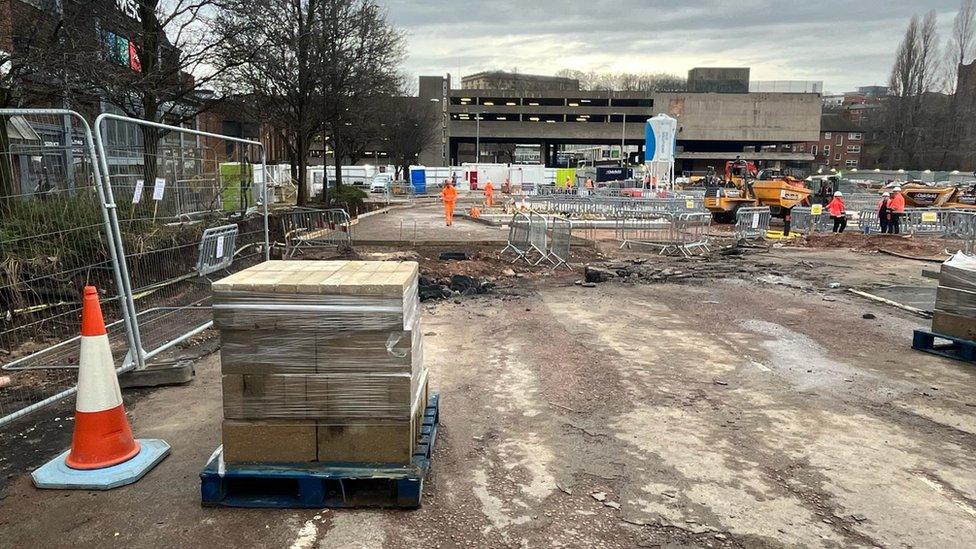
Much of the Broad Marsh area remains a building site
It comes after multi-million pound bids for government cash for the project have failed.
The council, which declared itself effectively bankrupt in November, has said it lacks the resources to complete the revamp on its own.
However it said it was still seeking private sector investment for the scheme, which would involve redeveloping what remains of the frame of half-demolished the shopping centre.
Under the current plans, a hotel would be created above the Broad Marsh area's cave network, as well about 750 homes and office space.
A council spokesman said: "We are currently finalising the masterplan and commencing a business case which will review the viability of the vision, as well as looking at the council's alternative options and identify the best delivery option.
"We have engaged with the private sector extensively, including as recently as last week, through a workshop seeking wide and varied partner views.
"We're also very shortly due to continue further soft-market engagement with the developer and funding market."
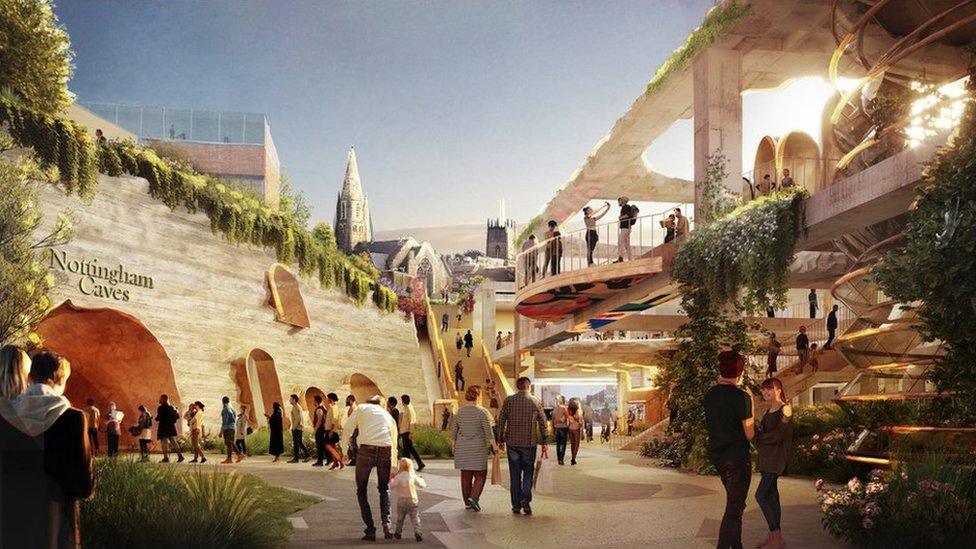
The Nottingham Caves attraction would have a hotel built above it, as part of the major redevelopment of the city centre
Jon Collins, who quit the Labour-run council in 2019, said the current plans for the shopping centre were "commercially undeliverable".
He said: "There is not a developer I've talked to who thinks there is any chance anybody will invest in that concrete and steel structure.
"The way development works is somebody does the building and then guarantees the work, so that the people who then buy the building have got confidence that they haven't taken on a huge liability.
"That concrete and steel frame was put up 50 to 60 years ago in the 1960s.
"Nobody is going to take on the risk of taking on that frame. It's about time people got real and said 'let's demolish it' and put some real buildings there."
Mr Collins, who set up a consultancy firm after leaving the council, told the Local Democracy Reporting Service (LDRS) a local developer had offered to buy the shopping centre site for £12m when Intu collapsed.
He said he believed the area could still be regenerated entirely through private sector investment.
"What you have effectively got is a council with no money running a vision and master-planning exercise, coming up with proposals that are not commercial, that have delayed developments and we are still waiting," he said.
"We've had years of blaming the government for not giving funding for something which quite frankly the private sector will be happy to be fund."
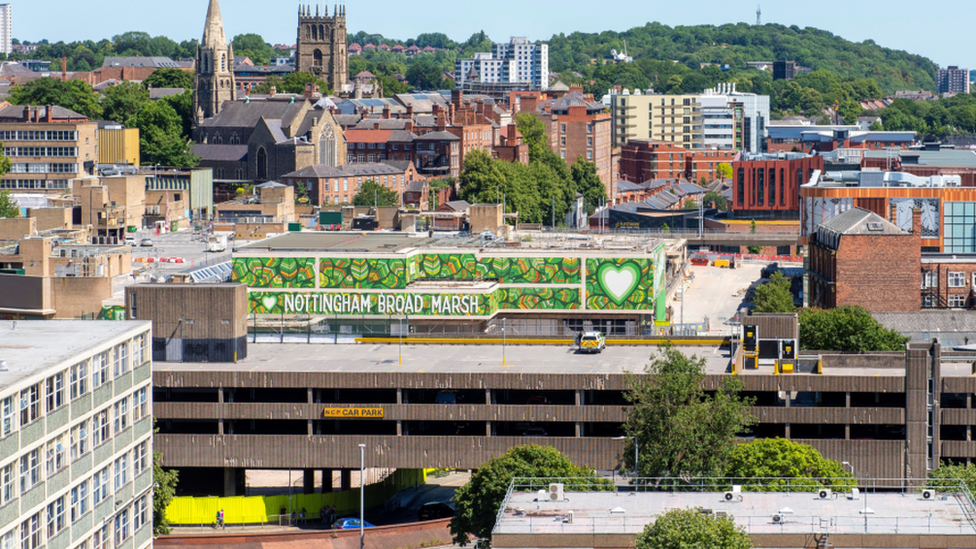
The council said it would look for other sources of cash to continue the Broad Marsh scheme
The council issued a section 114 notice in November admitting it could not plug an in-year budget gap of £23m.
It also identified a separate £53m budget black hole in the financial year beginning April 2024 which has led to plans for sweeping cuts to services.
The council has blamed government funding cuts, as well as soaring costs and demand in social care and homelessness services, for its financial crisis.
However a lack of cash reserves, in part caused by the collapse of council-owned Robin Hood Energy, was also cited as a reason for a lack of financial resilience in the council.
Mr Collins has now told the LDRS he takes responsibility for issues during his time as council leader and a director of the firm, and "in hindsight" would not have set the energy firm up.

Follow BBC East Midlands on Facebook, external, on X, external, or on Instagram, external. Send your story ideas to eastmidsnews@bbc.co.uk, external or via WhatsApp, external on 0808 100 2210.
Related topics
- Published1 December 2023
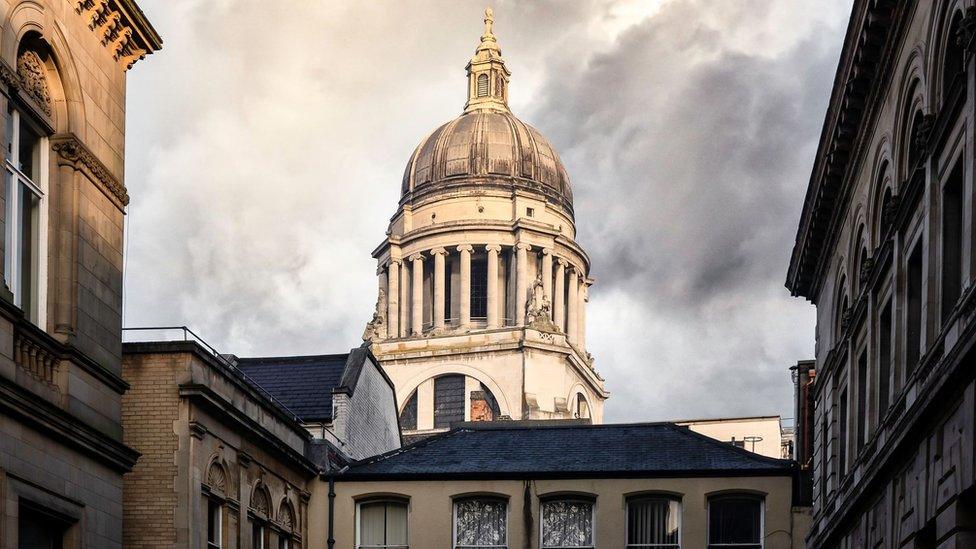
- Published3 December 2023
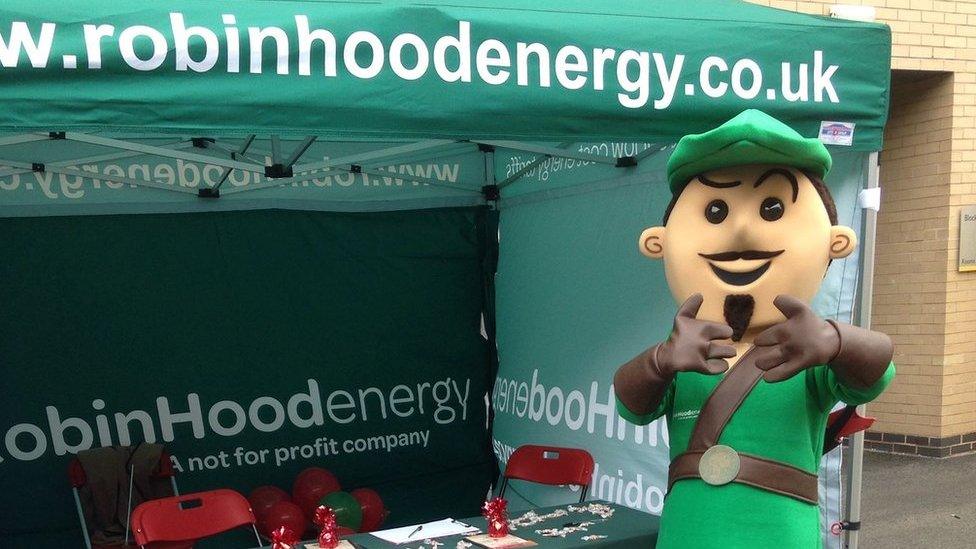
- Published30 November 2023
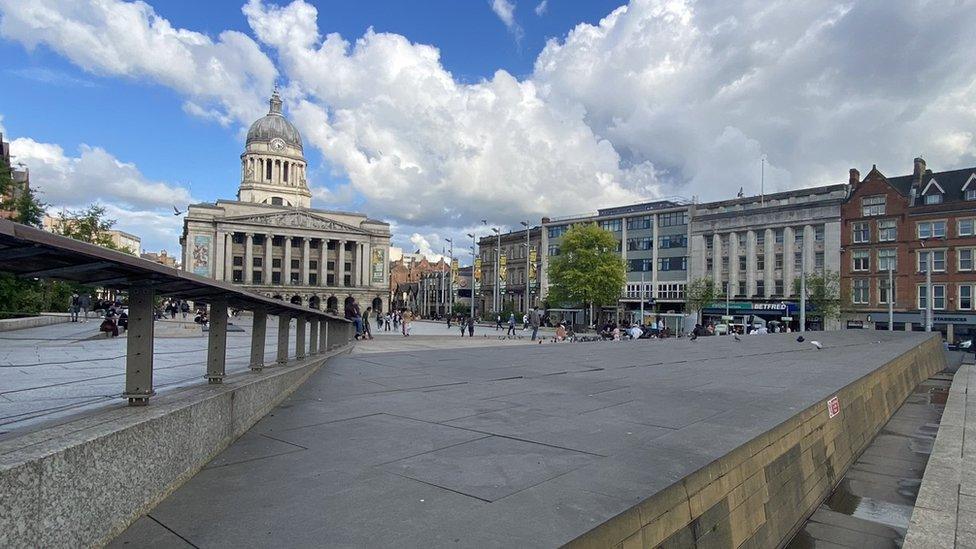
- Published21 November 2023

- Published26 July 2023
